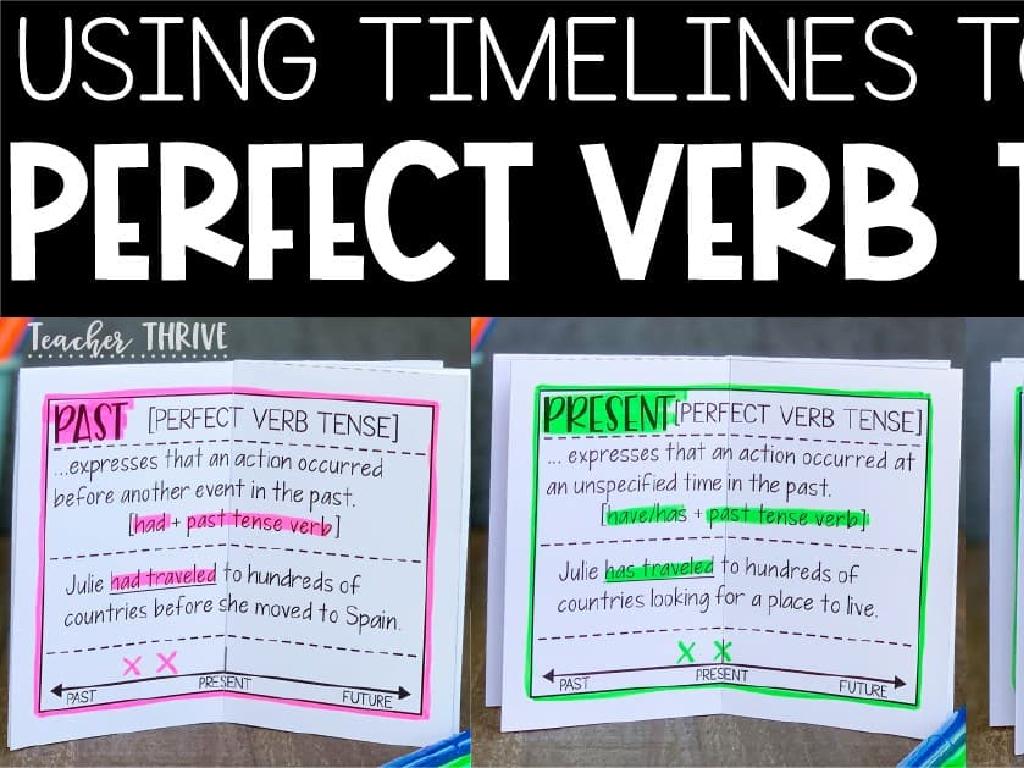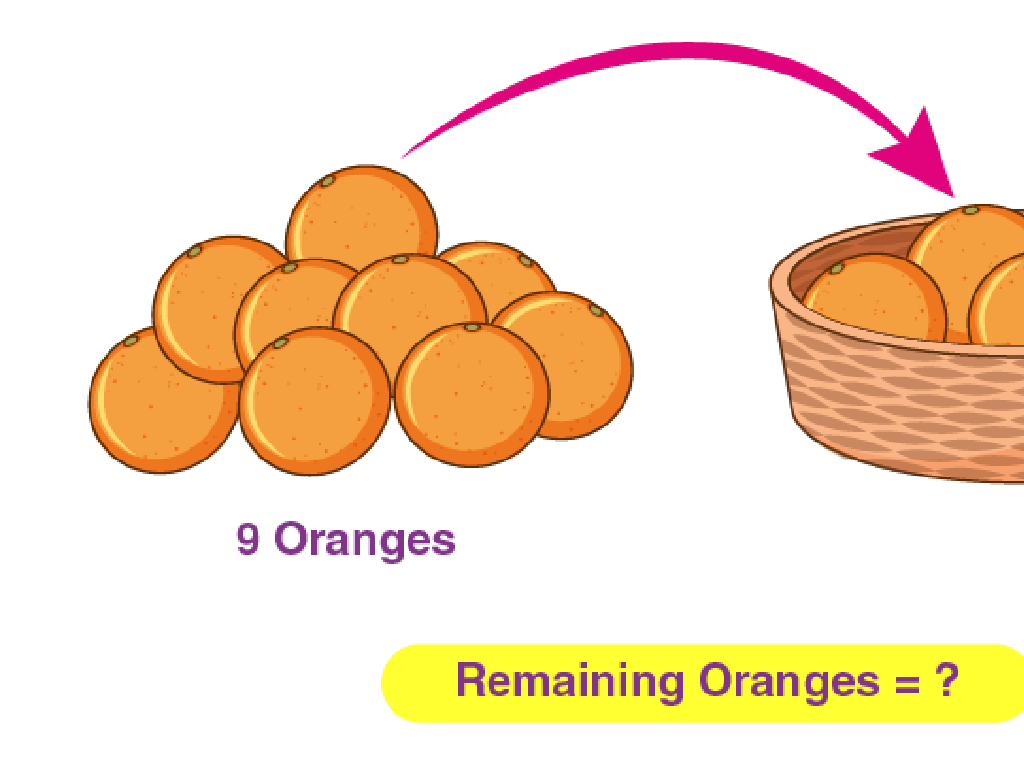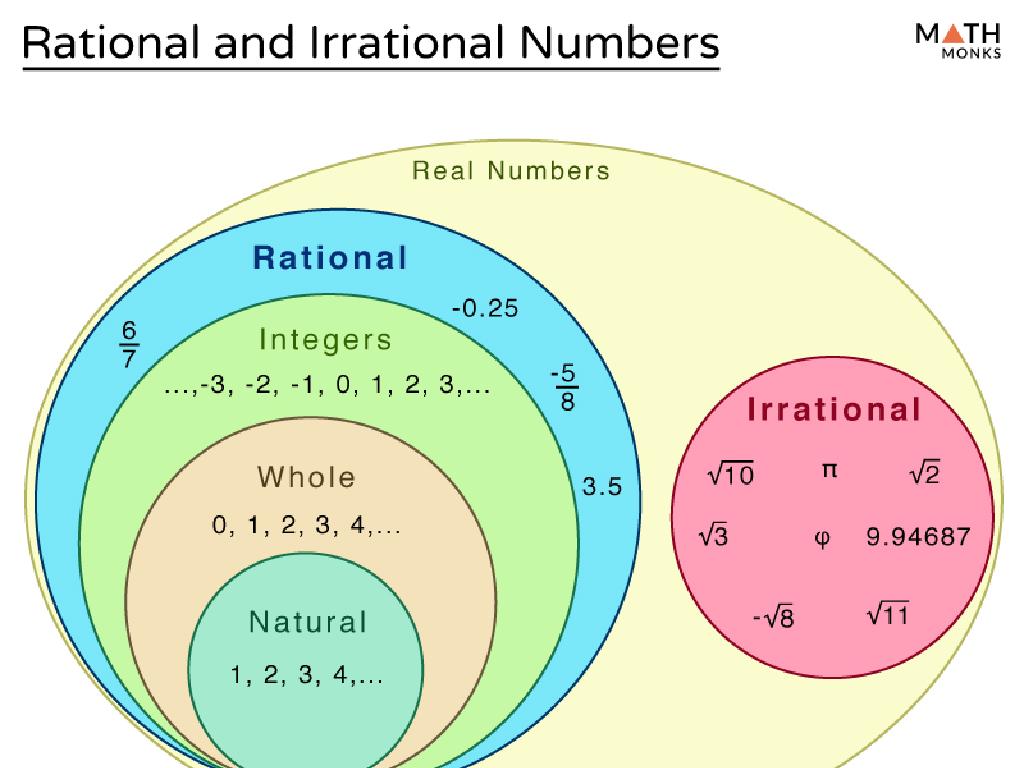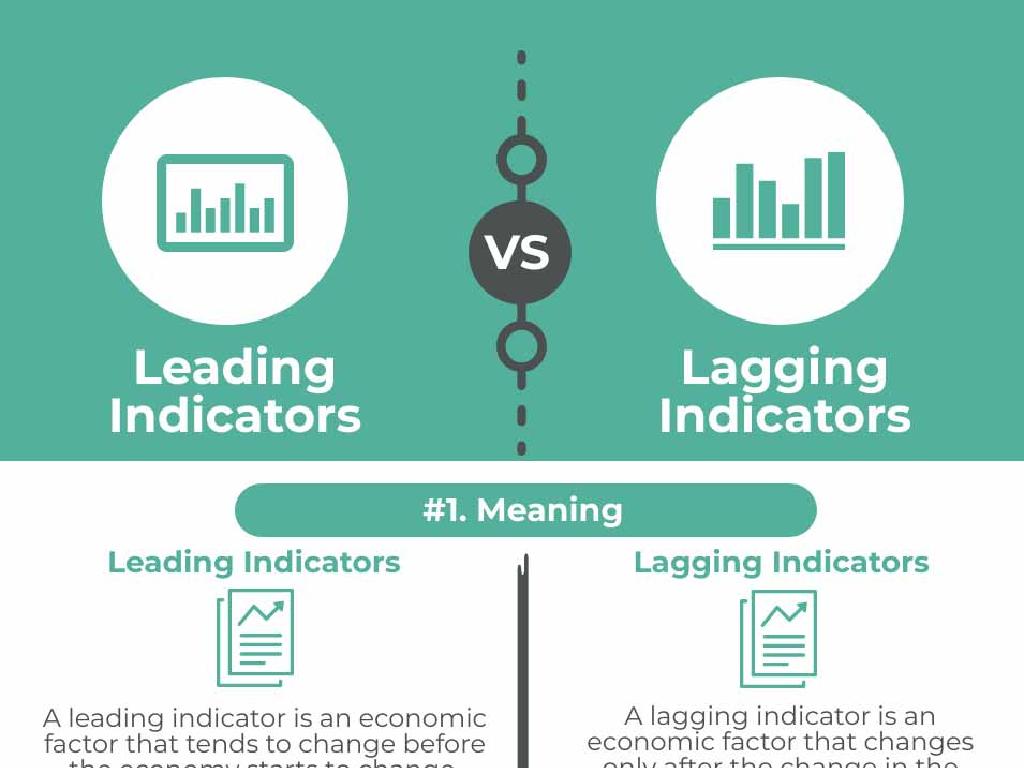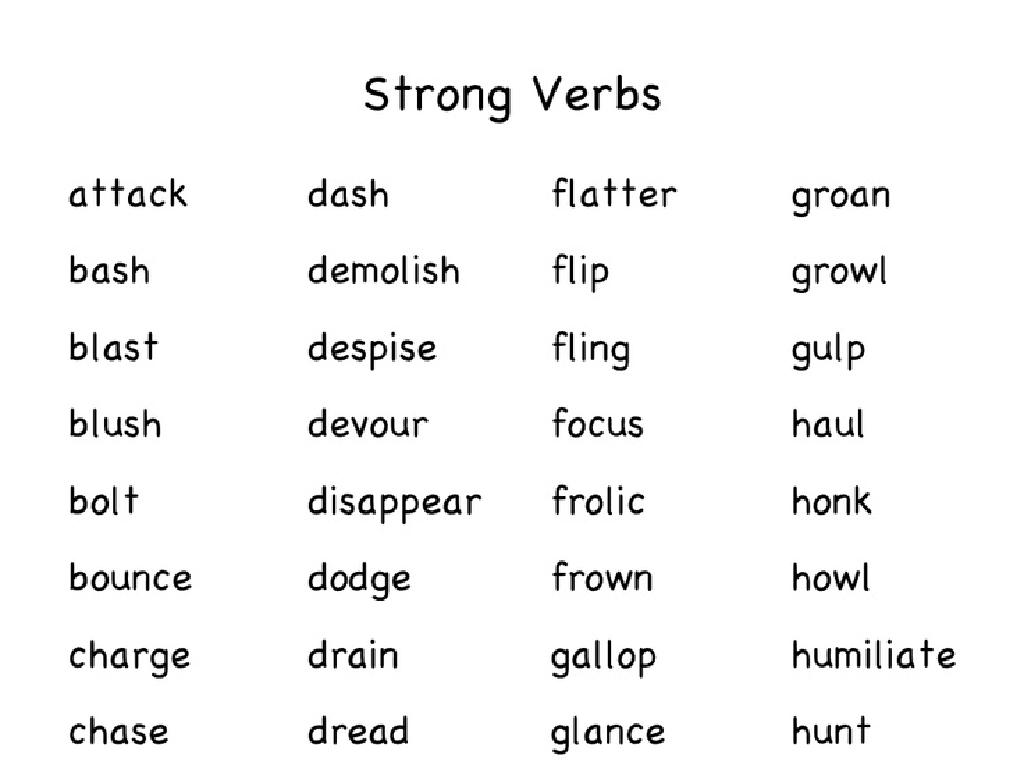Sort Words With Shared Suffixes By Part Of Speech
Subject: Language arts
Grade: Third grade
Topic: Prefixes And Suffixes
Please LOG IN to download the presentation. Access is available to registered users only.
View More Content
Exploring Suffixes in Words
– What are suffixes?
– Suffixes are endings we add to words to change how we use them.
– Suffixes change word meanings
– For example, ‘play’ becomes ‘playful’ when we add ‘-ful’.
– Suffixes indicate part of speech
– ‘-ment’ means it’s a noun, as in ‘enjoyment’.
– Practice sorting words by suffix
– We’ll sort words like ‘happiness’, ‘carefully’, ‘runner’, and ‘playful’.
|
This slide introduces the concept of suffixes to third-grade students. Begin by explaining that a suffix is a group of letters added to the end of a word to change its meaning or function. Illustrate how suffixes can alter the meaning of a word with examples. Then, explain that suffixes can also give us clues about the part of speech, such as whether a word is a noun, verb, adjective, or adverb. Engage the students with an activity where they sort a list of words based on their suffixes, identifying the part of speech for each. This hands-on practice will help solidify their understanding of how suffixes work and their role in grammar.
Exploring Suffixes
– What is a suffix?
– A suffix is a set of letters at the end of a word.
– Suffixes change meaning
– ‘Hopeful’ means full of hope, ‘joyful’ means full of joy.
– Suffixes alter part of speech
– ‘Quickly’ turns the adjective ‘quick’ into an adverb.
– Examples: -ful, -ly
– ‘Careful’ describes being full of care, ‘slowly’ means in a slow manner.
|
This slide introduces the concept of suffixes to third-grade students. Begin by explaining that a suffix is a group of letters added to the end of a word. Highlight how adding a suffix can change the meaning of the word and can also change its part of speech, such as turning a noun into an adjective or an adjective into an adverb. Provide clear examples like ‘-ful’ which indicates ‘full of something’ and ‘-ly’ which often turns adjectives into adverbs. Encourage students to think of more examples and discuss how the meaning of the base word changes with different suffixes. This will help them understand how suffixes work and prepare them for sorting words by part of speech in later activities.
Suffixes and Parts of Speech
– Suffixes transform words
– Example: noun to adjective
– ‘Happiness’ from ‘happy’ with -ness
– Example: verb to adverb
– ‘Quickly’ from ‘quick’ with -ly
– Exploring different speech parts
|
This slide introduces students to the concept of suffixes and how they can change the form and function of a word, turning it into a different part of speech. Start by explaining that a suffix is a letter or group of letters added to the end of a word. Show how adding -ness to the noun ‘happy’ turns it into the adjective ‘happiness’. Similarly, demonstrate how adding -ly to the verb ‘quick’ turns it into the adverb ‘quickly’. Use these examples to illustrate the concept, then explore other suffixes and encourage students to think of more examples. This will help them understand how suffixes affect the meaning and grammatical role of words in sentences.
Sorting Words by Suffixes
– Group words by suffixes
– Suffix -ness: adjectives to nouns
– ‘Sadness’ comes from ‘sad’, showing a state of feeling
– Suffix -ly: adjectives to adverbs
– ‘Happily’ comes from ‘happy’, describing how something is done
– Practice sorting words
– Find words in a story and sort them by these suffixes
|
This slide introduces the concept of suffixes and how they can change the part of speech of a word. The suffix -ness often turns adjectives into nouns, which can help students understand abstract concepts or states of being, such as ‘sadness’ from ‘sad’. The suffix -ly typically turns adjectives into adverbs, providing more detail about the action of a verb, like ‘happily’ from ‘happy’. Encourage students to practice by identifying words with these suffixes in their reading and sorting them into categories. This activity will enhance their vocabulary and grammatical understanding. Prepare a list of words for the students to sort in class and consider creating a worksheet that they can fill out as homework.
Suffix Sort Activity!
– Learn to sort words by suffixes
– Suffixes tell us word types
– Suffixes like -ness or -ment make nouns
– Example: ‘Careful’ is an adjective
– ‘-ful’ makes ‘care’ into ‘careful’, describing something
– Let’s practice sorting together
|
This activity is designed to help students understand how suffixes can change the meaning of a word and indicate its part of speech. Begin by explaining that a suffix is a group of letters added to the end of a word. Provide examples of suffixes that are commonly associated with nouns, verbs, adjectives, and adverbs. Use ‘careful’ as an example to show how the suffix ‘-ful’ turns the noun ‘care’ into an adjective. During the activity, have students sort a list of words into categories based on their suffixes. Encourage them to look for patterns and to use the suffixes to determine the part of speech. This hands-on activity will reinforce their understanding of suffixes and how they can alter the function of a word in a sentence.
Class Activity: Suffix Hunt
– Find words with suffixes in your book
– Write the words and their parts of speech
– Nouns often end in -ness, -ment; verbs in -ate, -ise; adjectives in -ful, -ous
– Share your suffix discoveries
– Learn how suffixes change word meaning
– Understand suffixes can turn a verb into a noun (e.g., ‘perform’ to ‘performance’)
|
This activity is designed to help students recognize and categorize words by their suffixes and corresponding parts of speech. Provide examples of common suffixes for nouns, verbs, and adjectives. Encourage students to look for these patterns in their books. As they write down their findings, they should note whether the word is a noun, verb, adjective, etc. Afterward, have a discussion where students share their findings, promoting peer learning. For the teacher: Prepare a list of suffixes and examples to help guide the students. Consider creating a worksheet where students can fill in their findings. Offer assistance to students who may struggle with identifying parts of speech. Have a few examples ready to show as a demonstration.
Suffix Sorting Success!
– Congratulations on sorting suffixes!
– Understanding suffixes and speech parts
– Suffixes can turn a verb into a noun, like ‘perform’ to ‘performance’
– Practice makes perfect
– Aim to become a suffix expert!
– Keep practicing with different words to master suffixes
|
This slide is meant to congratulate the students on their hard work and to reinforce the importance of understanding how suffixes can change the part of speech of a word. Emphasize the role of suffixes in altering the meaning and grammatical function of words. Encourage the students to continue practicing with more words and to explore how suffixes can create new words from familiar ones. This will help them become more proficient in identifying parts of speech and improve their reading and writing skills. Celebrate their progress and motivate them to keep learning and exploring language.

